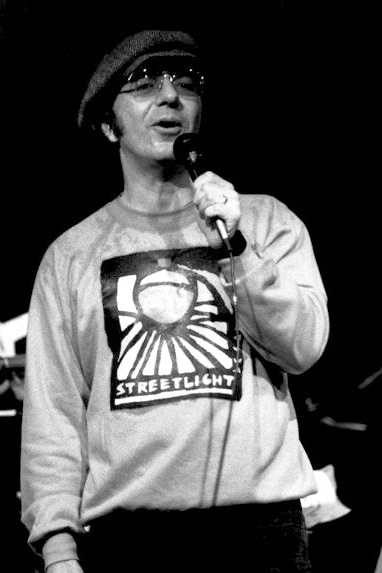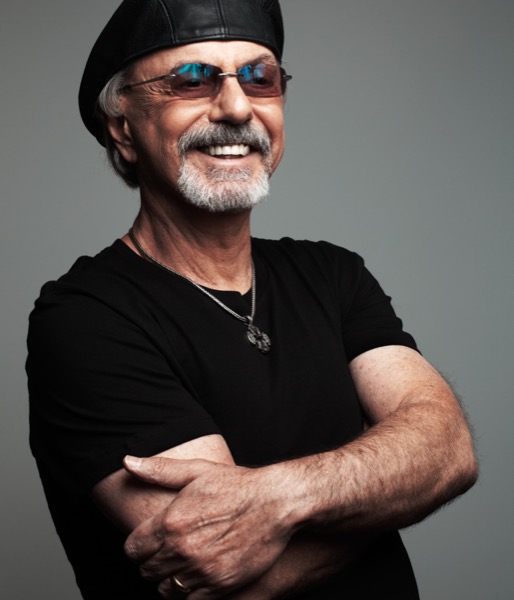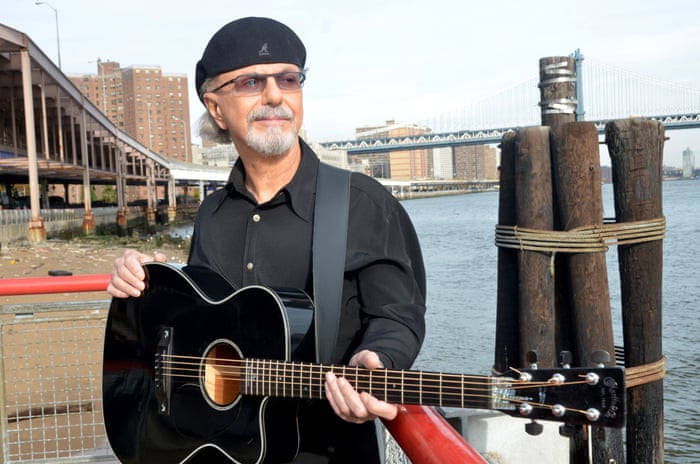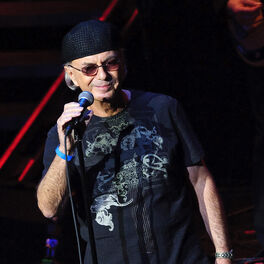Dion
Dion

Dion Francis DiMucci, born on July 18, 1939, better known as Dion, is an American singer and songwriter with a versatile style that blends elements of doo-wop, pop, rock, R&B, folk, and blues. Initially rising to fame as the lead singer of the vocal group Dion and the Belmonts, Dion later pursued a successful solo career and became one of the most prominent rock and roll performers of the pre-British Invasion era.
Dion enjoyed immense success in the late 1950s and early 1960s with 39 Top 40 hits as a solo performer, with the Belmonts, and with the Del-Satins. Some of his most iconic songs include "Runaround Sue," "The Wanderer," "Ruby Baby," and "Lovers Who Wander."
While Dion's popularity declined in the mid-1960s, he reinvented his style toward the end of the decade with more mature and reflective songs, such as "Abraham, Martin and John."
Throughout his career, Dion continued to make music, even during periods when he was no longer in the spotlight. In the 1980s, he produced several Christian albums, winning a GMA Dove Award in 1984 for "I Put Away My Idols." He later returned to secular music in the late 1980s with the album "Yo Frankie" (1989).
From the mid-2000s until 2021, Dion released six chart-topping blues albums, earning critical acclaim and reshaping perceptions of his earlier work. Despite being initially dismissed as a teen idol, his later music received praise, and his influence on other musicians became more widely recognized.
Dion's accolades include Grammy nominations, induction into the Rock and Roll Hall of Fame in 1989, and induction into the Grammy Hall of Fame in 2002 for "Runaround Sue." His recent album awards include Favorite Blues Album for "New York Is My Home" (2016), Favorite Compilations and Reissues for "Kickin Child: Lost Columbia Album 1965" (2017), and Favorite Blues Album for "Blues with Friends" (2020).
Dion, born into an Italian-American family in the Bronx, New York, had music in his blood from an early age. His father, Pasquale DiMucci, was a vaudeville entertainer, and Dion often accompanied him on tour as a child. During these experiences, Dion developed a deep appreciation for country music, especially the songs of Hank Williams.
Growing up in the Bronx, Dion was also exposed to the vibrant music scene of the time, including blues and doo-wop performers whom he heard in local bars and on the radio. He found inspiration from these genres and began honing his singing skills on the street corners and in the clubs of his neighborhood, where he and other local singers would create a cappella harmonies and riffs. This environment played a significant role in shaping Dion's musical style and laid the foundation for his future success in the music industry.

Dion's journey in the music industry began with an audition for Bob and Gene Schwartz of Mohawk Records in early 1957. Initially hesitant, Dion eventually recorded the single "The Chosen Few" with backing vocals from a group called "the Timberlanes." Despite Dion's initial reservations, the song became a minor regional hit, prompting his performance on American Bandstand and igniting his ambition to pursue a career in music.
Following the success of "The Chosen Few," Bob and Gene Schwartz signed Dion's friends, the Belmonts, consisting of Carlo Mastrangelo, Fred Milano, and Angelo D'Aleo. Dion and the Belmonts quickly gained recognition with their breakthrough hit "I Wonder Why" in early 1958, followed by "No One Knows" and "Don't Pity Me," all of which charted on the Billboard Top 100.
The group's rise to fame led them to join "The Winter Dance Party" tour alongside Buddy Holly, Ritchie Valens, the Big Bopper, and others. Dion narrowly avoided the tragic fate of the tour's fatal plane crash by declining to pay for the flight, a decision that saved his life but claimed the lives of several other performers.
Dion and the Belmonts continued to achieve commercial success with hits like "A Teenager in Love" and "Where or When." However, Dion's personal struggles with heroin addiction led him to check into a hospital in early 1960. Despite the group's success, tensions and differences among the members, coupled with Dion's health issues, eventually led to his departure from the Belmonts in October 1960 to pursue a solo career.
Nevertheless, their collaboration produced several chart-topping hits, solidifying Dion's reputation as one of the preeminent figures in rock and roll during the late 1950s and early 1960s.
Dion's solo career took off with the release of his first album, "Alone with Dion," in 1961 on Laurie Records. The album featured the hit single "Lonely Teenager," which peaked at No. 12 on the US charts, establishing Dion as a solo artist. Following this success, Dion faced challenges with subsequent singles like "Havin' Fun" and "Kissin' Game," which saw less traction on the charts.
However, his fortunes changed dramatically with the release of "Runaround Sue," a lively number co-written with Ernie Maresca and featuring the vocal group, the Del-Satins. The song became a massive hit, reaching No. 1 on the US charts in October 1961 and achieving gold disc status with over a million copies sold. Its B-side, "The Wanderer," also became a chart-topping success, reaching No. 2 in the US and No. 10 in the UK, solidifying Dion's status as a major star.
Throughout 1962, Dion continued to release successful singles, including "Lovers Who Wander," "Little Diane," and "Love Came to Me," all of which climbed the charts, further cementing his popularity. He also starred in the Columbia Pictures musical film "Twist Around the Clock" and released hit albums like "Runaround Sue" and "Lovers Who Wander."
At the end of 1962, Dion made a significant move from Laurie Records to Columbia Records, becoming the first rock and roll artist signed to the label. Despite initial success with singles like "Ruby Baby," "Donna the Prima Donna," and "Drip Drop," Dion faced challenges with his drug addiction and changing musical tastes, particularly with the rise of the British Invasion. This period marked a commercial decline for Dion, as his subsequent releases on Columbia Records saw less success.
References
- "Dion Biography, Songs, & Albums". AllMusic. Archived from the original on July 9, 2021. Retrieved March 18, 2022.
- ^ "Top Artists Of The 1980's". Topchristianhits.org. October 30, 2007. Archived from the original on February 6, 2022. Retrieved May 8, 2022.
- ^ "Dion's New Star-Studded Album Sets a New Blues-Rock Bar Height". April 25, 2020. Archived from the original on July 5, 2022. Retrieved May 5, 2022.
- ^ "Dion Albums and Discography". AllMusic. July 18, 1939. Archived from the original on March 13, 2022. Retrieved May 8, 2022.
- ^ Ace Records. "Dion". Ace Records. Archived from the original on March 15, 2022. Retrieved May 8, 2022.
- ^ "Dion & the Belmonts". AllMusic. Archived from the original on March 13, 2022. Retrieved March 18, 2022.
- a b "Del Satins, once a Dion backup group, tour again". Newsday. April 28, 2017. Retrieved March 18, 2022.
- ^ "The Del Satins Biography, Songs, & Albums". AllMusic. Archived from the original on March 15, 2022. Retrieved March 18, 2022.





















